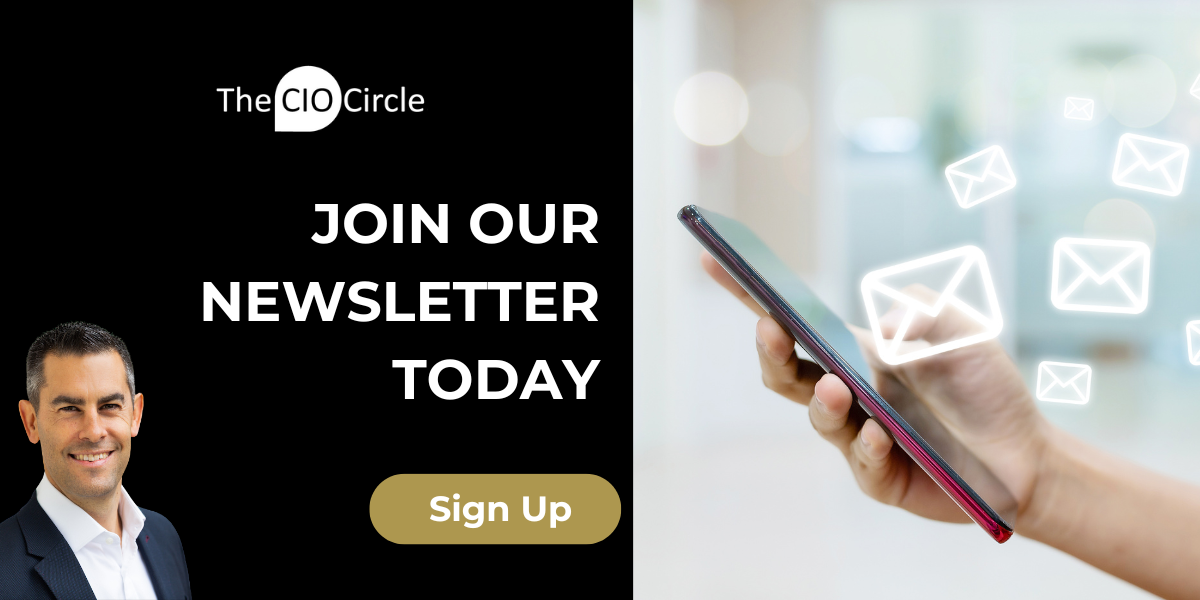BRAD BUSCHER
Chief Information Officer and Security Officer at PrairieStar Health Center
Can you please provide a little introduction about yourself
My current role is CIO/ISO at PrairieStar Health Center is a FQHC in Hutchinson, Kansas. We serve insured and uninsured alike. With quality healthcare from family practice to vision, dental, and mental health services.
What has your journey to your position been like? What path have you taken?
Healthcare is my fourth major industry in information technology. I started directly out of high school, joining the United States Navy, I spent 10 years in the intelligence community. Attending college at night I earned my B.S. in Computer Science from the Hawaii Pacific University, graduating summa cum laude.
Shortly after graduating, I joined a technology startup out of San Francisco as Chief Programmer. In that role, I led the software development of the company's kiosk products, developed and trained their technical support call center personnel, and assisted in product innovations taking our product from design to full deployment. During this time I created my own technology consulting company to aid small businesses in overcoming the challenge of basic infrastructure and communications needs.
Due to the economic downturn, I took on full-time employment with a local K-12 school district as their Director of Technology. Capitalizing on my leadership, budgeting, and broad technology exposure the district was able to move from just having a small lab environment to a 1:1 laptop/iPad ecosystem ensuring all students regardless of socioeconomic status have equal access to digital learning technology.
Now I have landed in health care. As CIO/ISO it's my role to make sure physicians, nurses, and administration have the tools they need to care for each and every patient with dignity and respect while maintaining the highest standards of quality. No longer is downtime just an inconvenience it's a potential matter of life and death for some. If our systems are down patients don't get the care they need. In rural health care, this is especially important as health care options are limited and often appointments are hard to get or for some to even get to.
Has it always been your vision to reach the position you’re at? Was your current role part of your vision to become a tech leader?
I'm not certain that I saw CIO as a goal when I first got into IT. Seeing computers as a possible stable career field I got started as it was the fastest degree I could achieve while on active duty. I have always gravitated to leadership positions regardless of the industry or role. To go along with that I have always enjoyed empowering others to excel in their goals. Being in leadership allows me to mentor, train, coach, and hopefully inspire. However now that I am here, with quite a few years left ahead of me (I Hope) perhaps CIO isn't my last stop? Time will tell and I hope I never promote to the point of being ineffective in my role.
Have you had a role model or mentor that has helped you on your journey?
For me, it's never been just one role model. However, my faith tops the list for sure. Along the way, there have been great men and women of talent, character, and inspiration. Some have inspired me by showing what I did not want to be like others were great to follow. In every instance, I hope I can learn from their successes and mistakes and become a better leader myself.
How do you see the role of the technology leader evolving over the next 5 years?
There will always be a need for technical expertise and the ability to coalesce and group of people around common goals. The future wont be that much different but the medium by which CIOs and leaders meet this challenge will continue to evolve. Remote work, Office work, and Hybrid roles will begin to blur and more and more cloud adoption comes on board for medium to small business the need to hire from just the local talent pool will diminish. But the need to reach beyond the small town to find qualified people will only increase. This will bring along all the HR challenges of comp packages, but the CIO's leadership will be to take whatever team is assembled bring them together and form a cohesive team. This is already done in large national and international companies but in the next ten year will be become an ever-increasing part for the medium to small business.
What skills do you think leaders of the future will need in order to thrive?
Technical understanding is a given. Empathy should be a given. The skill that we will need more than ever in the future is the ability to speak to every level of the organization and effectively communicate the challenges and goals in a language understandable by that level of the organization. A company's vision should not change but each level of an organization understands that vision differently depending on their role. and future leaders must be able to effectively communicate up and down the organizational structure.
How do you keep current with new skills, technologies and personal development?
Peer groups are my favorite avenue. However, I attend all types of training from technical to high-level leadership. I sit in meetings that are way over my head and I sit in the meetings of the most junior-level employees. I ask questions instead of pretending to know the answer. I hire good people, and experts, and learn from them just as I hope they can learn from me. Lastly and maybe most importantly I give myself time to think and ponder. As a leader, you cannot fill all your bandwidth with activity. You MUST give yourself time to think. Think about new things, think about your people, processes, and products. You must have time to stare out the window if you will and allow your years of experience to speak to you.
What do you see as the next leap in technology that will impact your business or industry in particular?
I really hope for the next leap in the real accessibility to wearables. So many companies have good health monitoring tech but the data never makes it back to the physician. Mostly due to accessibility of network connection, know-how of the patient, etc. All the data in the world makes no difference if it cannot be consumed in a digestible way at the time of need. Overcoming this challenge may have a technical component to it, but just throwing more money and more tech at the problem will not help. 5G has promised to improve the connectivity of IOT but for rural healthcare, those advances seem to be a million miles away.
"Know your stuff - always be learning."
If you were mentoring a leader of the future, what advice or guidance would you give to help them on their way?
To keep it brief:
- know your stuff - always be learning
- make a decision right or wrong - don't be the squirrel in the middle of the road
- stay humble - trust your team
- hire slow, fire fast - be patient to hire good people, and purge the rotten apples
- remember no one ever wished you worked longer hours - take time for yourself
Is there anything in particular that you would still like to achieve in your career or what is the next step on your journey?
I'm never happy without a challenge. If there was one thing I would love to achieve that would be, to be seen as an expert in my field and called upon to train and share my knowledge with others.
If you could change one thing in the world, what would it be?
I would hope for more compassion for my fellow man. Government can mandate but how much better if our hearts for our fellow man simply spurred us to help one another instead of waiting for some government entity to do it?
Other details that you'd like to add:
Each and every person has a story to tell. Some have had to turn their life around, and others have known their path from very early on. All their stories are worthy of telling. Every person in your organization from the CEO to the nighttime janitor is an important part of your team. As CIOs, we would do well to see every member of the team as valuable, not just those who work in IT. We should seek out ways to empower everyone to lead in their unique position.
A big thank you to Brad Buscher from PrairieStar Health Center for sharing his journey to date.
If you would like to gain more perspective from Tech Leaders and CIOs you can read some of our other interviews here.
January 3, 2024


